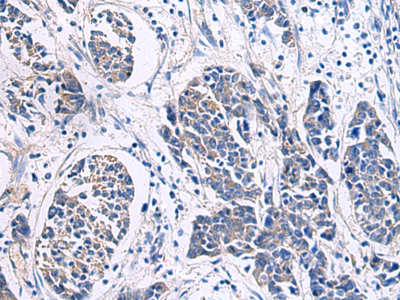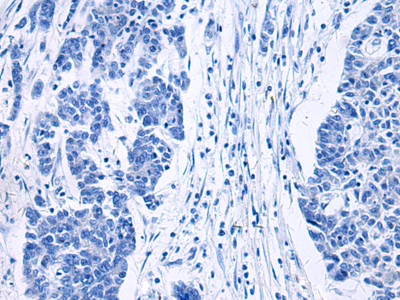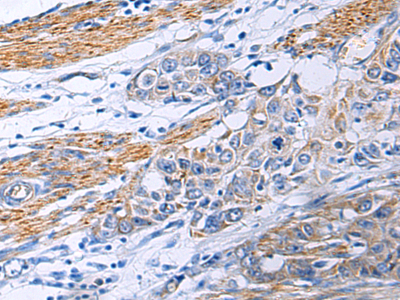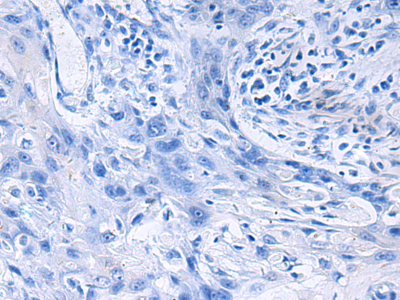| Cat.#: S221913 |
| Product Name: Anti-POLQ Rabbit Polyclonal Antibody |
| Synonyms: PRO0327 |
| UNIPROT ID: O75417 (Gene Accession – NP_955452 ) |
| Background: DNA polymerase that promotes microhomology-mediated end-joining (MMEJ), an alternative non-homologous end-joining (NHEJ) machinery triggered in response to double-strand breaks in DNA (PubMed:25642963, PubMed:25643323). MMEJ is an error-prone repair pathway that produces deletions of sequences from the strand being repaired and promotes genomic rearrangements, such as telomere fusions, some of them leading to cellular transformation (PubMed:25642963, PubMed:25643323). POLQ acts as an inhibitor of homology-recombination repair (HR) pathway by limiting RAD51 accumulation at resected ends (PubMed:25642963). POLQ-mediated MMEJ may be required to promote the survival of cells with a compromised HR repair pathway, thereby preventing genomic havoc by resolving unrepaired lesions (By similarity). The polymerase acts by binding directly the 2 ends of resected double-strand breaks, allowing microhomologous sequences in the overhangs to form base pairs. It then extends each strand from the base-paired region using the opposing overhang as a template. Requires partially resected DNA containing 2 to 6 base pairs of microhomology to perform MMEJ (PubMed:25643323). The polymerase activity is highly promiscuous: unlike most polymerases, promotes extension of ssDNA and partial ssDNA (pssDNA) substrates (PubMed:18503084, PubMed:21050863, PubMed:22135286). Also exhibits low-fidelity DNA synthesis, translesion synthesis and lyase activity, and it is implicated in interstrand-cross-link repair, base excision repair and DNA end-joining (PubMed:14576298, PubMed:18503084, PubMed:19188258, PubMed:24648516). Involved in somatic hypermutation of immunoglobulin genes, a process that requires the activity of DNA polymerases to ultimately introduce mutations at both A/T and C/G base pairs (By similarity). |
| Immunogen: Synthetic peptide of human POLQ |
| Applications: ELISA, IHC |
| Recommended Dilutions: IHC: 50-100; ELISA: 5000-10000 |
| Host Species: Rabbit |
| Clonality: Rabbit Polyclonal |
| Isotype: Immunogen-specific rabbit IgG |
| Purification: Antigen affinity purification |
| Species Reactivity: Human, Mouse |
| Constituents: PBS (without Mg2+ and Ca2+), pH 7.4, 150 mM NaCl, 0.05% Sodium Azide and 40% glycerol |
| Research Areas: Epigenetics and Nuclear Signaling |
| Storage & Shipping: Store at -20°C. Avoid repeated freezing and thawing |

Immunohistochemistry analysis of paraffin embedded Human colorectal cancer using 221913(POLQ Antibody) at a dilution of 1/30(Cytoplasm). | 
In comparision with the IHC on the left, the same paraffin-embedded Human colorectal cancer is first treated with the synthetic peptide and then with 221913(Anti-POLQ Antibody) at dilution 1/30. | 
The image on the left is immunohistochemistry of paraffin-embedded Human esophagus cancer using 221913(Anti-POLQ Antibody) at a dilution of 1/30. | 
In comparision with the IHC on the left, the same paraffin-embedded Human esophagus cancer is first treated with synthetic peptide and then with D263727(Anti-POLQ Antibody) at dilution 1/30. |
|














